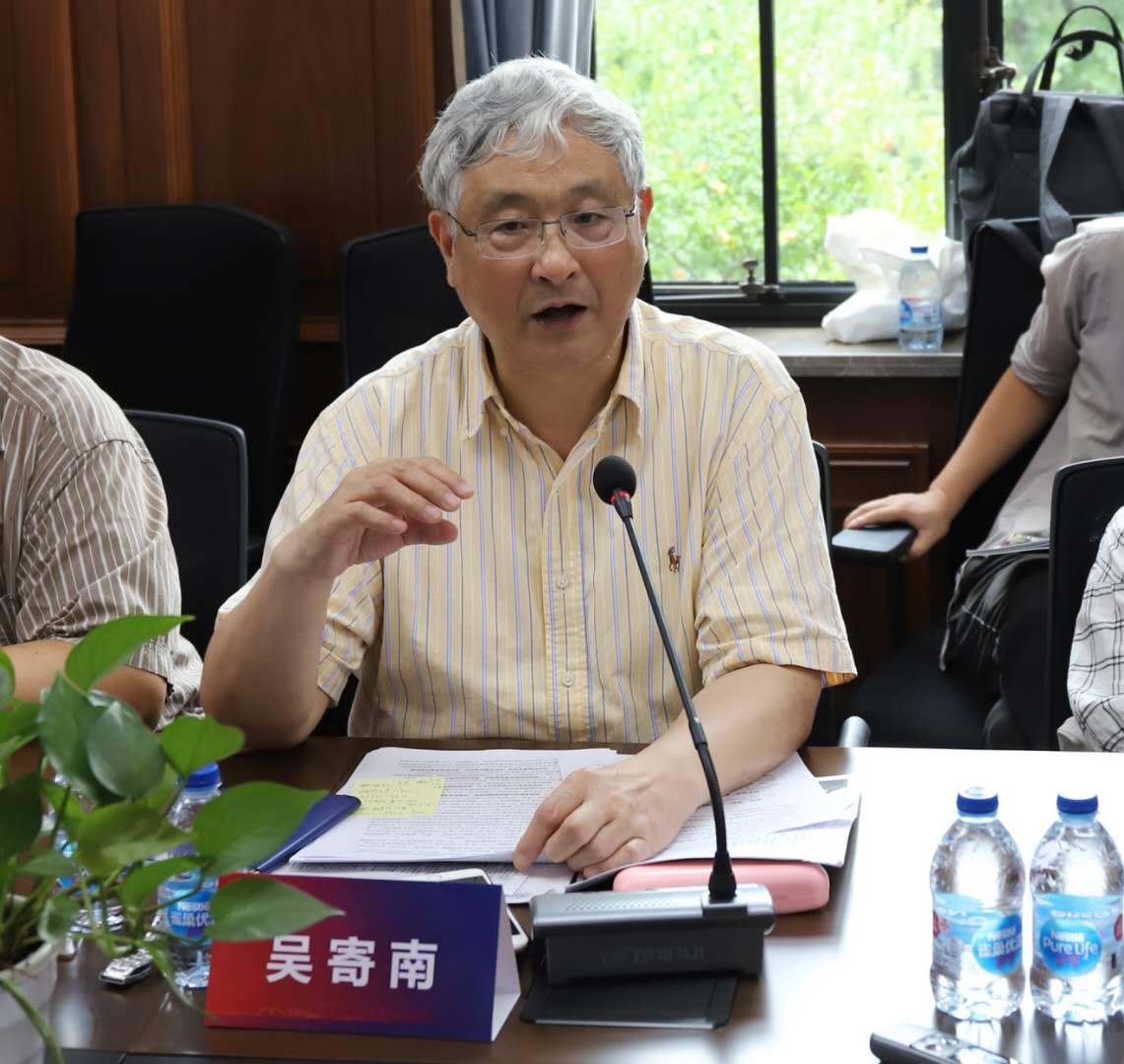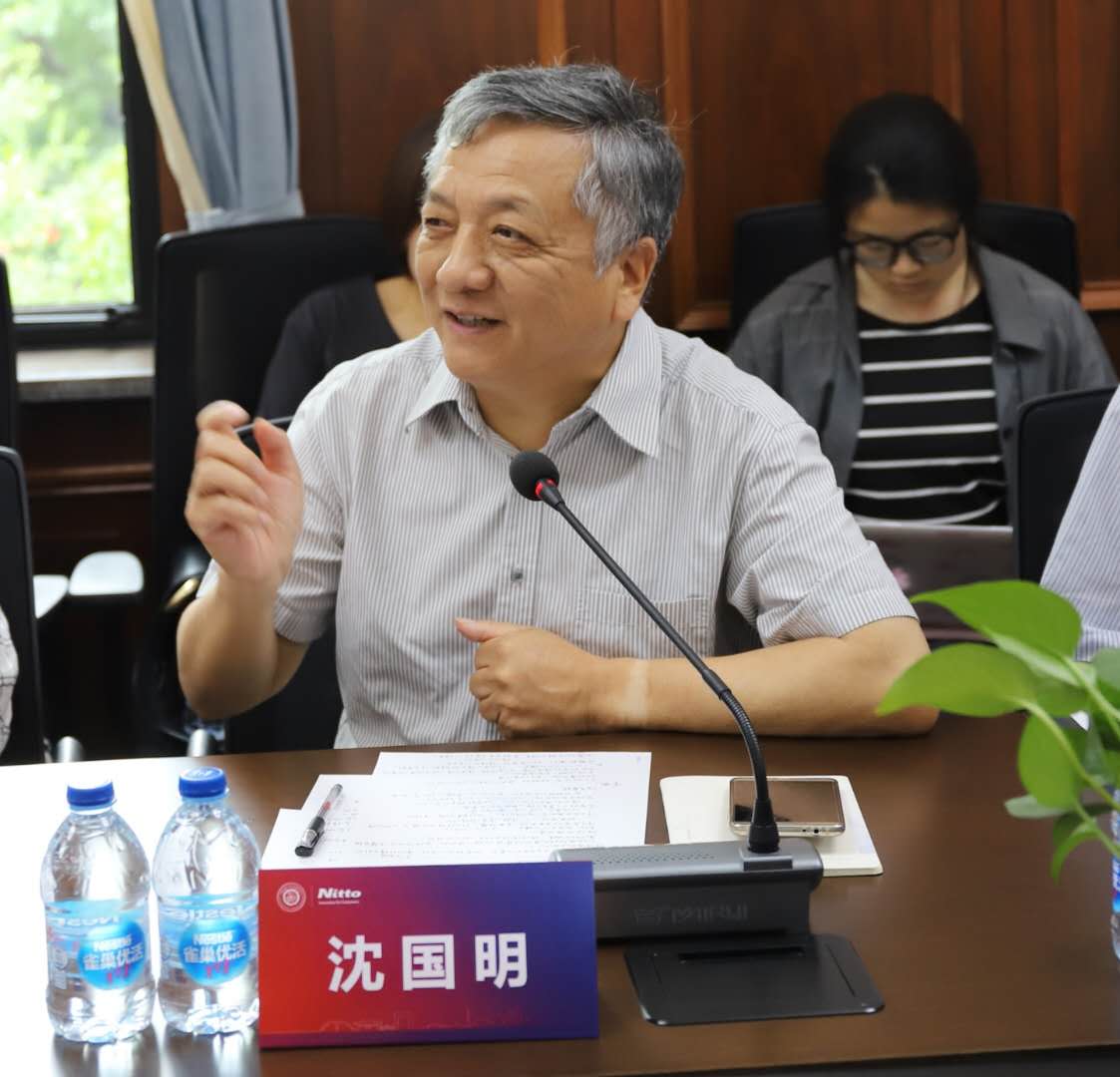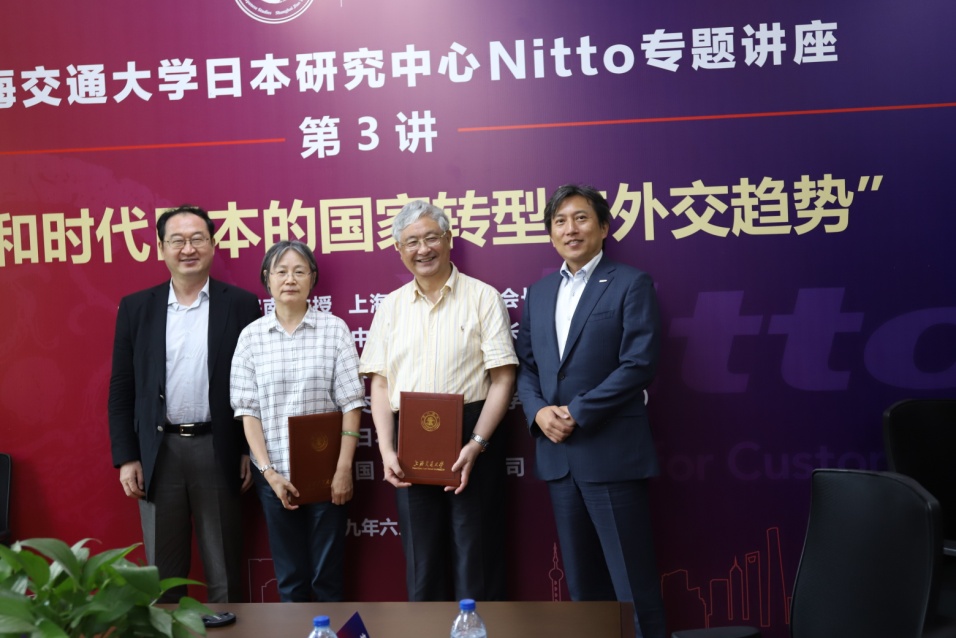On the morning of June 29, 2019, with the strong support of Nitto Electric Corporation, the third lecture of Nitto Special Lecture of Shanghai Jiaotong University, "Economic and Social Transformation and Diplomatic Trends in Japan in the Era of Peace", was successfully held in the Japan Research Center. This lecture invited Professor Wu Jinan, President of the Shanghai Japan Society, and Professor Li Wei, President of the China Japan Society as the keynote speakers, the former Party Secretary and Vice Chairman of the Shanghai Federation of Social Sciences, Professor Shen Guoming, Kaiyuan School of Law, Shanghai Jiaotong University as the reviewer, and Professor Ji Weidong, Director of the Japan Research Center, Shanghai Jiaotong University as the moderator. At the same time, many well-known scholars participated in the lecture.

Director Ji Weidong first reviewed the previous two successful Nitto lectures, and then Mr. Great Wall Shengyi, director of Nitto Electric, delivered a speech. Mr. Cheng said that at present, people are very interested in the economic development trend of Japan after its entry into the era. Therefore, the theme of the third lecture - the economic and social transformation and diplomatic trend of Japan in the era of Linghe is very consistent with the current situation.
The first speaker was Professor Wu Jinan, President of the Japan Society in Shanghai. From the perspective of development and continuity, Professor Wu analyzed and looked forward to the just beginning Linghe era, not limited to the Linghe era, but from the development trend of Japan in the Showa era. Taking the latest current events of Osaka G20 as the starting point, Professor Wu mainly discusses from four aspects: economy, society, diplomacy and politics. In terms of economy, Japan is in the process of profound transformation. How to solve the problem of labor shortage and the survival of small and medium-sized enterprises in Japan, where the economic structure and internal transformation of enterprises are changing, will become an important proposition of the times; In terms of society, Japan's efforts for equal rights between men and women in the Heisei era and its concern for special social groups are obvious to all, but the aging and childless problems will certainly have a far-reaching and profound impact on the entire Japanese society; In terms of diplomacy, after Prime Minister Shinzo Abe came to power, a series of diplomatic measures made the world see Japan's initiative and aggressiveness, which also reflects Japan's desire to become a big country; In terms of politics, after years of continuous turbulence, Japan finally tends to be stable. After Shinzo Abe's comeback, Japan's political situation is relatively stable, and its policies are characterized by continuity. On the whole, the "one strong, many weak" feature of Japan's political situation should continue for some time.

Speech by Professor Wu Jinnan
Later, Professor Li Wei, President of the China Japan Society, delivered a speech. From a slightly different perspective from Professor Wu, Professor Li Wei roughly divided his speech into "Linghe Era", "Economic and Social Transformation" and "Diplomatic Trends". As for the understanding of Linghe Times, Professor Li Wei believes that this is a kind of expectation for the future. "The topic of peace and the expectation of peace" symbolizes that Japanese people hope that the country will remain young and energetic. For China, it has become an expectation for the friendly development of China Japan relations. In terms of economic and social transformation, Professor Li, starting from the bubble economy in the Heisei era, described Japan after the defeat as a "confused state". At that time, Japan's capitalism was impacted by the new capitalism from the United States. Under this background, Japan's economic and social transformation was necessary. The change of economic base leads to the change of social stratum, which will eventually lead to the change of political situation. Whether the measures taken by Shinzo Abe, Prime Minister of Japan, to maintain social stability are effective or not requires people to wait for good news in the Linghe era. Finally, with regard to Japan's diplomatic trend, Professor Li Wei talked about Japan's self orientation, the world's perception of Japan, and a series of issues such as Japan's current diplomatic emphasis on regional aspects.

Professor Li Wei's Speech
After the speech, Professor Shen Guoming, former Secretary of the Party Leadership Group and Vice Chairman of the Shanghai Federation of Social Sciences, and Kaiyuan Law School of Shanghai Jiaotong University, made brilliant comments. Professor Shen believes that China and Japan should learn from each other. From the perspective of China, while vigorously developing the economy, China needs to learn more from Japan in terms of national quality and environmental governance. From the perspective of cooperation between the two countries, how to integrate China's Belt and Road Initiative and Japan's Indo Pacific Strategic Initiative perfectly instead of becoming contradictory is a major issue facing both countries. The Indo Pacific concept is conducive to the harmony and stability of the Asia Pacific region, and the Belt and Road Initiative can also promote cooperation between Europe and Asia. The common development of the country is very important, and how to work together needs to be further refined and implemented.

Professor Shen Guoming gives a speech
After comments, enter the question and discussion stage. Professor Zhai Xin asked the two speakers: will Japan's China policy change with the complexity of China US relations? Has China policy been established or needs to look forward to the future? In this regard, the two speakers believed that Japan's current security forces were very limited, and if it were to overturn with the United States now, it would inevitably cause thorny problems. However, the attitude of the United States does not have no influence on Japan. In terms of diplomacy, Japan has scruples about the United States due to its security alliance, but has also expressed considerable enthusiasm for China. It can be said that Japan is conducting diplomacy in a way of betting on both sides. As a Chinese side, we should try our best to expand the docking between China and Japan, so as to squeeze uncertain aspects from certain aspects.
At the end of the lecture, Chairman Cheng and Professor Ji Weidong issued a letter of thanks to the two speakers, thanking them for being the keynote speakers of the lecture and making outstanding contributions to Japan research and organization in China and Shanghai for a long time. This lecture can also be called a dialogue summit between Beijing and Shanghai. The exchange of views among scholars will help promote China Japan relations in the future.

Chairman Cheng Shengyi and Director Ji Weidong issued a letter of thanks to the two speakers